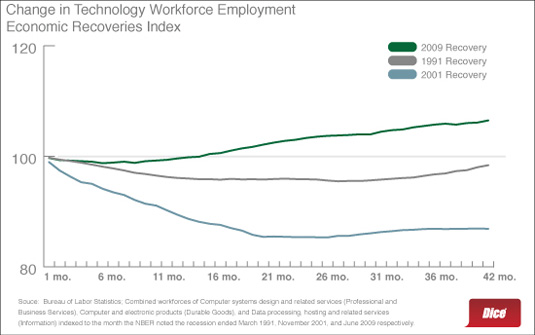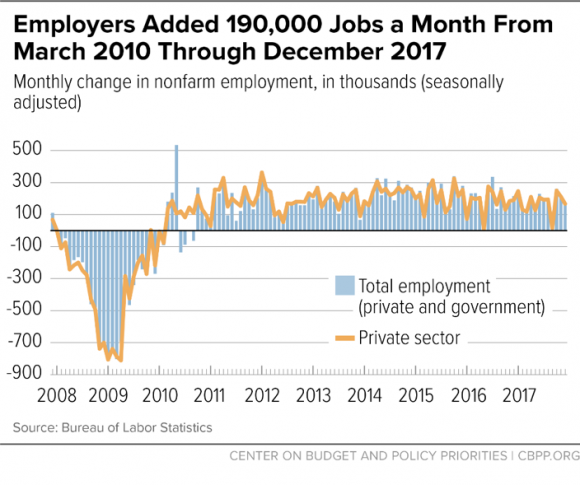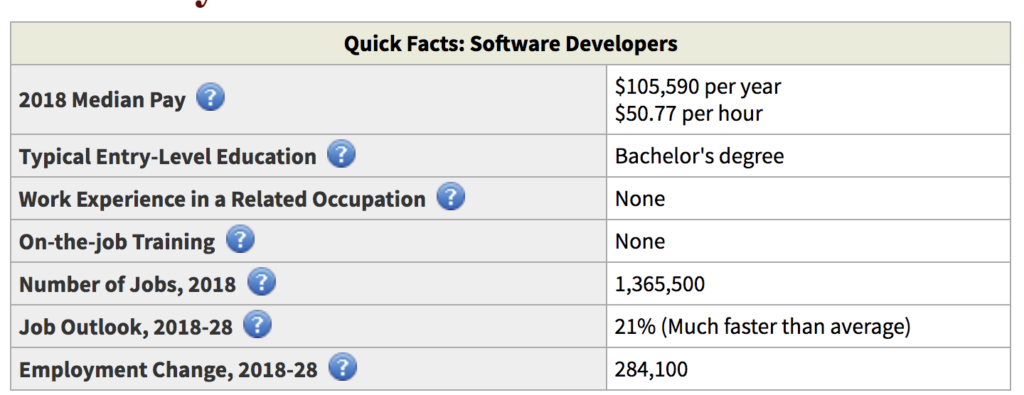Is Programming Recession-Proof?

With COVID-19 bringing the economy to a halt, the stock market crashing, and even the most optimistic economists predicting a recession, you are probably thinking about your economic security. I am too, which led me to ask myself: is programming recession-proof? So I dug into the data, and in this article, I will share with you what I found.
The 2000 recession was not kind to programmers. Internet stock prices got out of control, and when the bubble popped, it left a slew of dead startups in its wake. Tens of thousands of programmers lost their jobs and found themselves in a difficult job market that lasted over two years.

In the early 2000s, however, the rise of technology was just beginning. It didn’t play nearly the same role in the global economy as it does in 2020, where four out of the six companies that have achieved trillion-dollar market caps (at any point in time) are tech companies (Apple, Amazon, Alphabet, Microsoft).
A better point of reference is the Great Recession, which was caused by the housing marketing collapse in 2007. In that economic downturn, tech companies were much stronger than they were in the previous recession. So how did programmers fare during those tough times?
According to the data, they were much better off than most other professions. Of course, some software engineers lost their jobs during the Great Recession. Still, overall, the number of programming jobs in the United States started growing again after less than a year, and even at the recession’s worst, programming jobs never steeply declined.

Other industries were not so lucky. Overall, the U.S. economy shed over a million jobs.

By the end of 2012, the U.S. unemployment rate was 8.7 percent, but the unemployment rate for programming professionals was only 4.1 percent. When you compare how I.T. professionals fared during the Great Recession to other professions, it is clear I.T. workers were very fortunate.
Programming jobs increased during the last economic crisis because software went from an afterthought to mission-critical at almost every company in the world, and companies now prioritize it even during an economic downturn. The data backs this up: in 2009, during the Great Recession, a survey of over 6,000 executives and development professionals conducted by SoftServe found 60 percent of respondents increased their software development budgets for the year.
Today, software engineers are even better positioned than they were in 2007 because there is a severe shortage of computer scientists. According to Code.org, as of March 2020, there are 633,501 open computing jobs in the United States, and only 61,642 computer science students graduated into the workforce last year.
On top of that, the U.S. Bureau of labor statistics projects software engineering jobs will rapidly grow from 2020 to 2028. According to the Bureau, “Employment of software developers is projected to grow 21 percent from 2018 to 2028, much faster than the average for all occupations. Software developers will be needed to respond to an increased demand for computer software.”

For comparison, the average projected growth rate for all occupations is 5 percent, and right before the Great Recession, programming jobs were only expected to grow by 7.4% a year.
Could a new recession destroy over 600K jobs and stop the rapid growth of software engineering jobs? It is possible but unlikely. If this recession is similar to the last one, we can expect the number of projected programming jobs to decline. Still, it is unlikely companies will shed enough programming jobs to erase the current programming job deficit, especially considering that technology companies have only grown stronger since the last downturn.
During the Great Recession, future mammoth tech companies like Facebook were just getting warmed up. Plus, the rise of the sharing economy unicorns like Airbnb and InstaCart that are now an essential part of the economy hadn’t happened yet.

One thing to keep an eye on, however, is overvalued startups. Many experts think we are in a tech bubble. One of the reasons Tim Ferriss stopped angel investing is because he was frustrated with how much capital was chasing so few startup ideas.
With the collapse of WeWork (even though it pretended to be a tech company when it wasn’t), I wouldn’t be surprised if startups with astronomical valuations but little revenue go under, which would be harmful to programming jobs. Still, it most likely will not be enough to erase the other inherent advantages people with programming skills have in the job market right now, even in a recession.
Of course, COVID-19 is an unprecedented event, so nothing is guaranteed. I wouldn’t go as far as saying programming jobs are recession-proof. I like the term recession-resistant better. If programmers are unable to find work because of the economic fallout from COVID-19, it most likely means we are entering another great depression, or the startup bubble was much bigger than anyone thought.
Still, there is no skill I would rather have during an economic downturn than knowing how to program. If you don’t know how to program yet, you should consider using your extra time (if you have any) to learn to code.
Even if you don’t want to become a software engineer, learning to code will make you more valuable to employers, which will help your job prospects if the expected recession occurs. The first thing you need to do is figure out what programming language you want to start with, and then find the right resources to get started with.
I hope we are all impacted as minimally as possible economically by this, but it is best to start preparing now. That means learning to program if you can’t already and expanding your skillset by learning new technologies if you can.
Stay safe and productive, everyone!






Thanks for all your work to tell us of what we might experience in the future, Roy Rice
You are very welcome!
Thank you for this article and the research you put into it. I am working on learning how to code and currently working at a grocery/health food store and recent (COVID 19) events have made me wonder if in this economically shaky times, it would be wiser to give up my dreams of ever programming at a living and putting all my energy into excelling and moving up at my current job (which I love and give my 100% at). But my gut feeling is that programming is such a big part of me and I don’t want to lose it. I feel like I would always regret it if I didn’t at least try. So this article was really timely and was information I needed. Especially since the opinions about how everything with the economy will play out are all over the negative-positive spectrum. So the plan (for right now) is to keep working on my programming skills and keep working hard at my job. Thank you so much for the information!
You are welcome! I hope you continue programming. It sounds like it is your passion, so keep learning!
I Cory. Interesting points. But I think you are a little bit ignorant.
I’m S.E from Poland so-called dragon valley. I worked for Motorolla, Samsung, and a few other players.
Human nature is that we are extremely biased always. Even people who serve as road traffic scheduler claims their job will always be! It is long gone.
You comparing today with 2009 when technology was booming, I mean really booming. You see my country at this time as a whole was kept growing. GDP constantly grow we didn’t have any crisis then… Why? because we were in the same phase as technology.
Now is technology mature and honestly so many fish in pond. After growth is time to harvest. Too many companies try to solve same problems… It will be very naive that economy will not clean herself. Where I would no go that way but is worth mention that Code.org is heavily influenced by people who will mainly benefit from propagating coding (more people in market lower wages).
What is ridiculous is:
“633,501 open computing jobs” I’m sorry but what you are trying to prove with that? In Europe, there is constantly millions of open driving position or cleaning service… Does this mean that they will be a high paid specialist in a moment? In Poland, I constantly hear about the shortage of programmer 50 000 by every Bootcamp who sells courses… What they are not telling there is a shortage not so big of course, but we need specialist 8 plus years and so on.
Guess what.. almost every industry constantly need specialists…
Like always the first job will lose average and bad employees.
Look also how programming becoming more accessible to others. I mean python? will you compare it to C or to assembler?
Constant propaganda brings pardon my language more and more sheeps.
As a programmer with more than 10 years of working experience would tell you something: If someone wants to earn money programming is the worst thing to chose. If you devote so much energy and time you will exceed earnings by miles. I did that exactly… after 2 years in old boring industry I/m making more than as s.e with 10 plus years.
P.S I just saw at the end that you have a conflict of interest selling your products.
Stupid me. If I would see that at the beginning will probably ignore this
But because I already wrote this what the heck. Will just leave it here